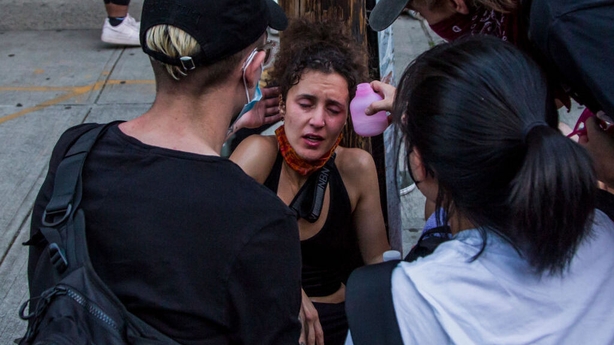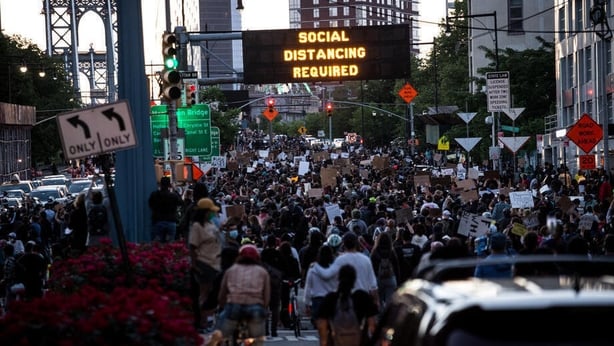US President Donald Trump has urged state governors to crack down on protests over racial inequality that have engulfed the nation's cities, as officials extended curfews to prevent a seventh night of looting and vandalism.
The protests, largely peaceful during the day before turning violent at night, erupted over the death of George Floyd, a 46-year-old African American who died in Minneapolis police custody after being pinned beneath a white officer's knee for nearly nine minutes.
An independent autopsy ordered by Mr Floyd's family and released today found that his death was a homicide and he died of "mechanical asphyxiation," meaning from some physical force that interfered with oxygen supply.
Those results contradicted preliminary findings by the Hennepin County Medical Examiner's Office that Mr Floyd died from a combination of factors, including possible substances in his system and underlying medical conditions.
The new findings emerged after Mr Trump spoke to the governors.
"You have to dominate," Mr Trump told the governors in a private call obtained by media including Reuters.
"If you don't dominate, you’re wasting your time - they’re going to run over you, you’re going to look like a bunch of jerks," he said.
Mr Trump said the federal government was going to clamp down "very strong" on the violence.
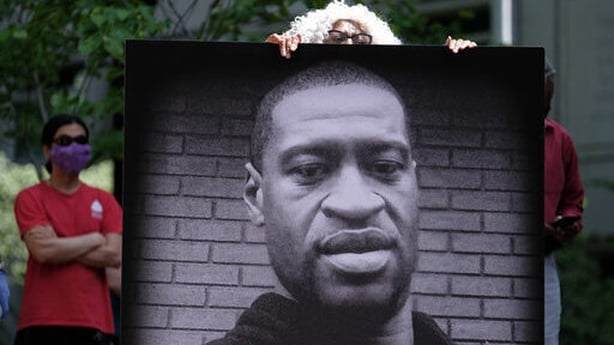
Dozens of cities across the United States remain under curfews, and the National Guard has been deployed in 23 states, and Washington D.C.
Curfews were extended in the capital, where authorities fought to put out fires near the White House overnight; in Minnesota, which has experienced some of the worst violence, and in Los Angeles.
One person was killed in Louisville, Kentucky, overnight where police and National Guard troops returned fire while trying to disperse a crowd.
Police in Chicago, the country's third-largest city, fielded more than 10,000 calls for looting, Mayor Lori Lightfoot told a briefing.
The unrest, which erupted as the country was easing lengthy lockdowns to stop the spread of the coronavirus, began with peaceful protests over the death of black man, George Floyd, in police custody in Minneapolis last Monday.
Video footage showed a white police officer kneeling on the neck of Mr Floyd, for nearly nine minutes before he died.
Derek Chauvin, a since-fired 44-year-old police officer, has been charged with third-degree murder and second-degree manslaughter.
He was released on $500,000 bail and is due to appear in court on 8 June, according to jail records.
Dozens of people quietly paid their respects to Mr Floyd at the scene where he lost his life. Visitors left flowers and signs honouring Mr Floyd on the pavement.
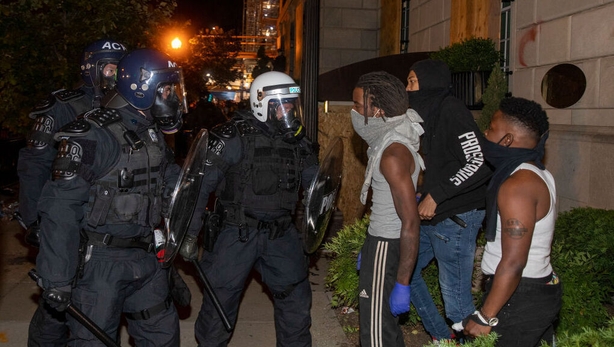
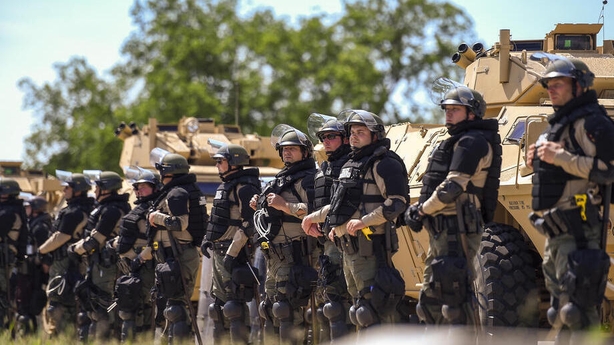
Terrence Floyd, the victim's brother, told the gathering he wanted people to get educated, vote and not destroy their own communities. "Let's do this another way," he said.
Mr Floyd's death was the latest in a string of similar incidents to prompt an outcry over racism in law enforcement. It reignited outrage across a politically and racially divided country that has been hit hard by the coronavirus pandemic, with African Americans accounting for a disproportionately high number of coronavirus cases.
The US Justice Department has directed the Bureau of Prisons to send riot-control teams to Miami and Washington D.C, to help manage the protests, a senior department official told reporters.
Read More:
President Trump blames left-wing activists as violence sweeps US
Demonstrations at several US embassies over George Floyd death
Police officer charged over death of George Floyd
Protestors have gathered outside the @WhiteHouse again today chanting "black lives matter". #GeorgeFloydProtests @rtenews pic.twitter.com/1WtCKKKHtT
— Brian O'Donovan (@BrianOD_News) June 1, 2020
We need your consent to load this rte-player contentWe use rte-player to manage extra content that can set cookies on your device and collect data about your activity. Please review their details and accept them to load the content.Manage Preferences
Department investigators are interviewing people arrested during protests who might face federal charges for such offenses as crossing state lines to incite violence, the official said.
Many cities affected by the unrest are restarting some normal economic activity after more than two months of stay-at-home orders to stem a pandemic that has killed more than 104,000 people and plunged more than 40 million people into joblessness.
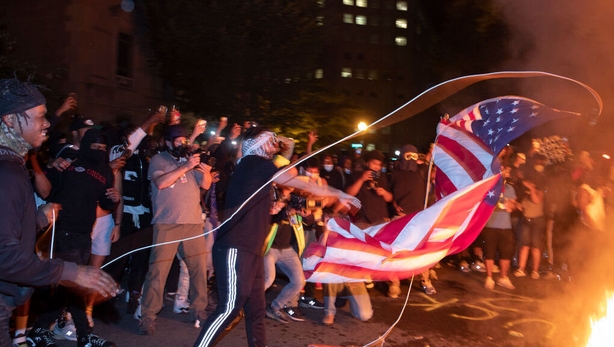
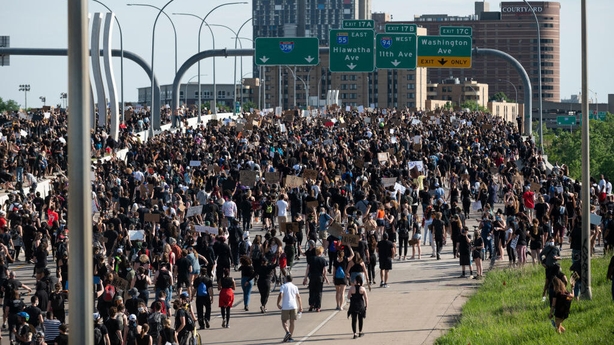
New York City Police Commissioner Dermot Shea told a news briefing with Mayor Bill de Blasio that police are seeing "outside agitators coming and trying to rally people to do bad things."
Mr Trump has condemned the killing of Mr Floyd and promised justice but has made no major public statement to address the crisis.
In tweets he has described protesters as "thugs" and threatened to use the US military.
"These are terrorists ... They're Antifa and they're the radical left," Mr Trump told the governors, referring to the shorthand name for a loosely organized movement of anti-fascists but without offering evidence.
Critics accuse the Republican president, who is seeking re-election in November, of stoking conflict and racial tension rather than seeking to bring the country together and address the underlying issues.
Democratic presidential candidate Joe Biden, critical of Mr Trump's handling of the crisis, met black community leaders in a church and said he would create a police oversight board within his first 100 days in the White House.
